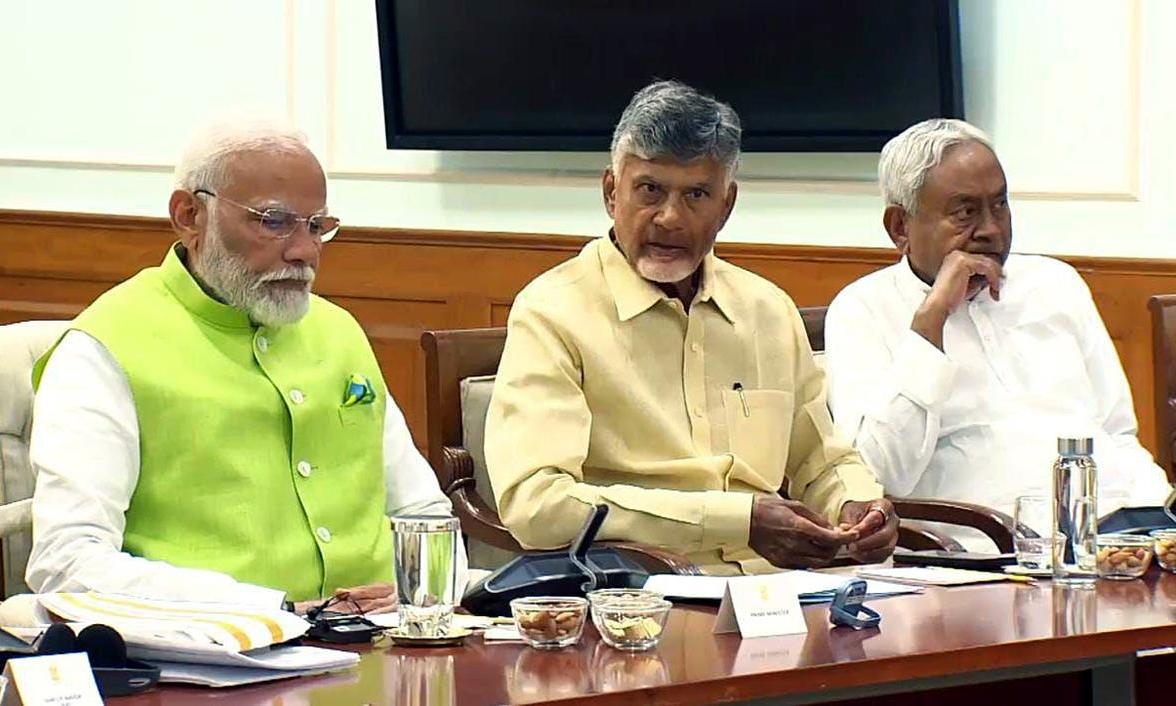
Concerns over Adani-SEBI, Waqf Act, Secular Code: Nascent rifts in NDA?
text_fieldsRecent developments within the National Democratic Alliance (NDA) highlight emerging tensions among its allies, with concerns over Prime Minister Narendra Modi's proposals and ongoing investigations contributing to a growing sense of unease.
The Janata Dal (United)-(JD(U)) and the Telugu Desam Party (TDP), once vocal opponents of the BJP during Modi’s second term, are now navigating a cautious path as they continue their alliance with the ruling party.
These parties, which had previously been at the forefront of calls for a Joint Parliamentary Committee (JPC) probe into allegations by Hindenburg Research against the Adani group, are now showing signs of internal conflict and apprehension regarding recent policy developments.
Issues with the Uniform Civil Code and Waqf Act Amendments
Reports indicate that both the JD(U) and TDP are facing internal and external pressures due to their alliance with the BJP. Their defensive stance is largely attributed to their need to align with the BJP's policies while managing their own political bases. The JD(U) and TDP have expressed concerns over Prime Minister Modi’s statements regarding the Uniform Civil Code (UCC). Modi’s recent emphasis on the UCC, now framed as a “secular civil code,” has raised alarms among these parties about potential backlash from the Muslim community, a significant vote bank in their home states.
The JD(U) and TDP’s apprehensions are compounded by the proposed amendments to the Waqf Act, which are now under scrutiny by a JPC. Both parties have raised concerns that these amendments could alienate their Muslim constituents. The ongoing discussions around the Waqf Act and the JPC's involvement are seen as indicative of the nascent rifts within the NDA, as these issues expose the delicate balance the allies must maintain between their commitments to the BJP and their obligations to their voter bases.
NDA’s coordination meeting highlights emerging rifts
In response to these growing concerns, the NDA held a coordination meeting at BJP president J.P. Nadda’s residence—the meeting aimed to address the internal discord and ensure that alliance partners remained unified.
Senior BJP sources confirmed that the NDA resolved to hold regular monthly meetings to discuss and resolve issues among its members. The decision underscores the alliance’s effort to manage and mitigate the emerging tensions that could threaten its cohesion.
Despite these efforts, significant differences remain. TDP leader N. Chandrababu Naidu has publicly stated that his party will not support any initiatives that could undermine minority rights, including changes to the UCC that might be seen as discriminatory. JD(U) working president Sanjay Jha has also voiced concerns, noting that concrete details about the UCC proposal have not yet been presented to the allies.
Waqf Amendment Bill
The Waqf Amendment Bill has further exacerbated tensions. While the bill was cleared by the Union Cabinet without strong objections from allies, debates in Parliament saw the TDP’s Harish Balayogi advocate for a JPC review. This call for further scrutiny reflects the party's discomfort with the amendments and their potential implications. Reports suggest that other NDA members, including the Lok Janshakti Party (LJP) and Jana Sena Party, also support the demand for a JPC.
The BJP’s leadership has been working to address these concerns through its coordination meetings. Key figures from the BJP, including Union Ministers Kiren Rijiju, Bhupender Yadav, L. Murugan, and General Secretary Arun Singh, participated in the discussions. Other NDA constituents at the meeting included Hindustan Awam Morcha chief Jitan Ram Majhi, Apna Dal leader Anupriya Patel, and representatives from various regional parties. The meeting aimed to reconcile differences and reaffirm the NDA’s commitment to maintaining a unified front.
The differences over the UCC and Waqf Act amendments illustrate the complexities of maintaining a coalition with diverse regional and ideological perspectives. As the BJP and its allies navigate these turbulent issues, the ability of the NDA to address and resolve these concerns will be crucial in determining the future stability of the alliance.
The ongoing debates and emerging rifts within the NDA highlight the difficulties of balancing political alliances with policy commitments and voter expectations. As the NDA moves forward, resolving these issues will be key to maintaining its cohesion and effectiveness in governing.






















